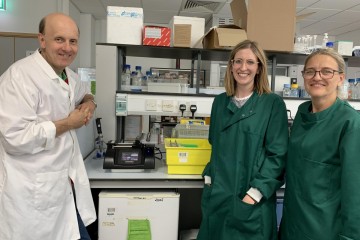Partnerships and impact awards
Utilising tissue-on-a-chip technology as an ex vivo model of breast cancer metastatic colonisation

At a glance
Completed
Award date
July 2019 - March 2021
Grant amount
£75,596
Principal investigator
Professor John Greenman
Co-investigator(s)
- Dr Victoria Green
- Dr Rachel Eyre
Institute
University of Hull
R
- Reduction
Read the abstract
View the grant profile on GtR
